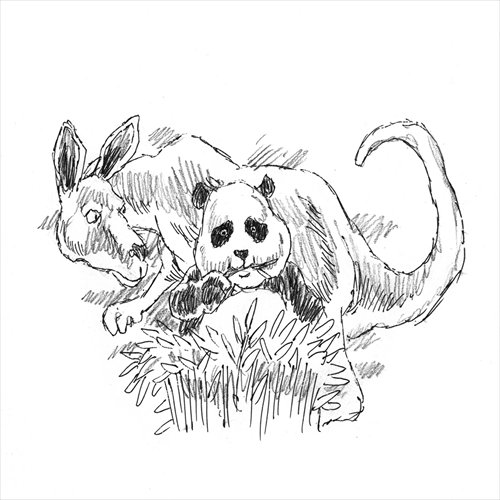Australia needs to learn to take Chinese goals more seriously

Australia's most senior trade delegation is visiting China. It is Prime Minister Julia Gillard's second visit and she is one of the first Western leaders to visit the new Chinese leadership.
Australian business leaders in the know will readily concede that Gillard's last trip to Beijing in April 2011 was a fizzer. During her last trip, the Chinese raised the issue of foreign direct investment rules and Australia's seemingly discriminatory approach to Chinese firms, the issue of Chinese workers to reduce business costs and to speed up projects in Australia and critically, Australia's defense ties with the US and possible bases in Australia.
The investment rules continue to rankle and the issue of labor for the Chinese is real as it affects the performances and productivity of Chinese firms.
Australia's responses to these issues have been a deafening silence, and there has been no movement or give in these areas. In fact, Gillard has even tried to play the race card in recent weeks and months: Foreign workers are a no-no in a high-skilled, high-wage Australia.
Hubris also appears to be at work. Australia has the resources and the minerals, and its education system possesses quality institutions which the Chinese desire. Australia's tourist sites draw the Chinese. Australia aims to double the number of Chinese visitors to Australia by 2020.
Gillard's visit this time is all about the economic clout of China and its growing middle class. One wonders what the prime minister will say if the Chinese raise the same issues they raised with her last time. Would she be able to respond articulately and politely apologize for non-actions or would it be business-as-usual with Australia's priorities and Australian needs?
Australians like to think they have a special relationship with the US, but the Australia, New Zealand, United States Security Treaty (ANZUS) is one of many defense arrangements entered into by the US in East Asia and the Pacific. ANZUS helps to lock Australia into the US defense and security complex.
Indeed, from east to west, there is a whole battery of US bases corralling China, Japan, South Korea, Guam, Taiwan, the Philippines and Australia in the east and south of China. On China's western borders, we have US military bases in Pakistan, Afghanistan, Iraq, Kyrgyzstan, and pro-US governments in and ties to Turkmenistan and Azerbaijan. And when regular bases are absent, the naval facilities of friendly nations are pressed into their service, like Singapore. In recent weeks, the US announced the roving role of a fleet in the South China Sea, and last year it sought to rebuild a base in Vietnam.
Australia already has a defense treaty with the US, and Pine Gap and North West Cape support US defense capabilities. Recently, there has been the intimation of US troops to be based in Darwin, more use of Australia's defense and air force facilities, surveillance and communications facilities and military exercising in Australia. US spy planes will be based in Cocos Island, and in Western Australia, Stirling Harbor is flagged as a possible home base for an Indian Ocean aircraft carrier taskforce.
The Australian government needs to place the interests of the people of Australia first. Australia should make clear that it will not be party to any US military buildup or facilitate storage, carriage or use of nuclear weapons of any kind within its borders or partake uncritically in any US-led wars.
Sure, alliances are critical and worth preserving, but Australia needs to be aware of its role within its region. It also needs to be mindful that despite all the criticisms of China, there is no evidence of the imperialism practiced by Russia, most European states and the US.
Similarly, if Australia just sees China as an endless supply of investment funds, and a customer base for its products and services and merely a market to be prized open, this is not a true engagement. China will at some point in time realize the rather one-sided nature of the relationship.
The US defense ties, the use of Chinese labor and the parity of treatment of Chinese investment in Australia cannot be simply managed by clever noncommittals and bureaucratic and obfuscating rules.
Foreign policy and diplomacy is an art. It is about making things happen and that parties in a dialogue both can come away from such talks happy and feel that something tangible has been achieved. Australia cannot continue to appear disinterested in Chinese wants. There needs to be a genuine engagement with China and what it desires.
The author is an associate professor at Murdoch University. He is a fellow at the Asian Research Institute and teaches both Chinese and international business at Murdoch Business School. l.wong@murdoch.edu.au